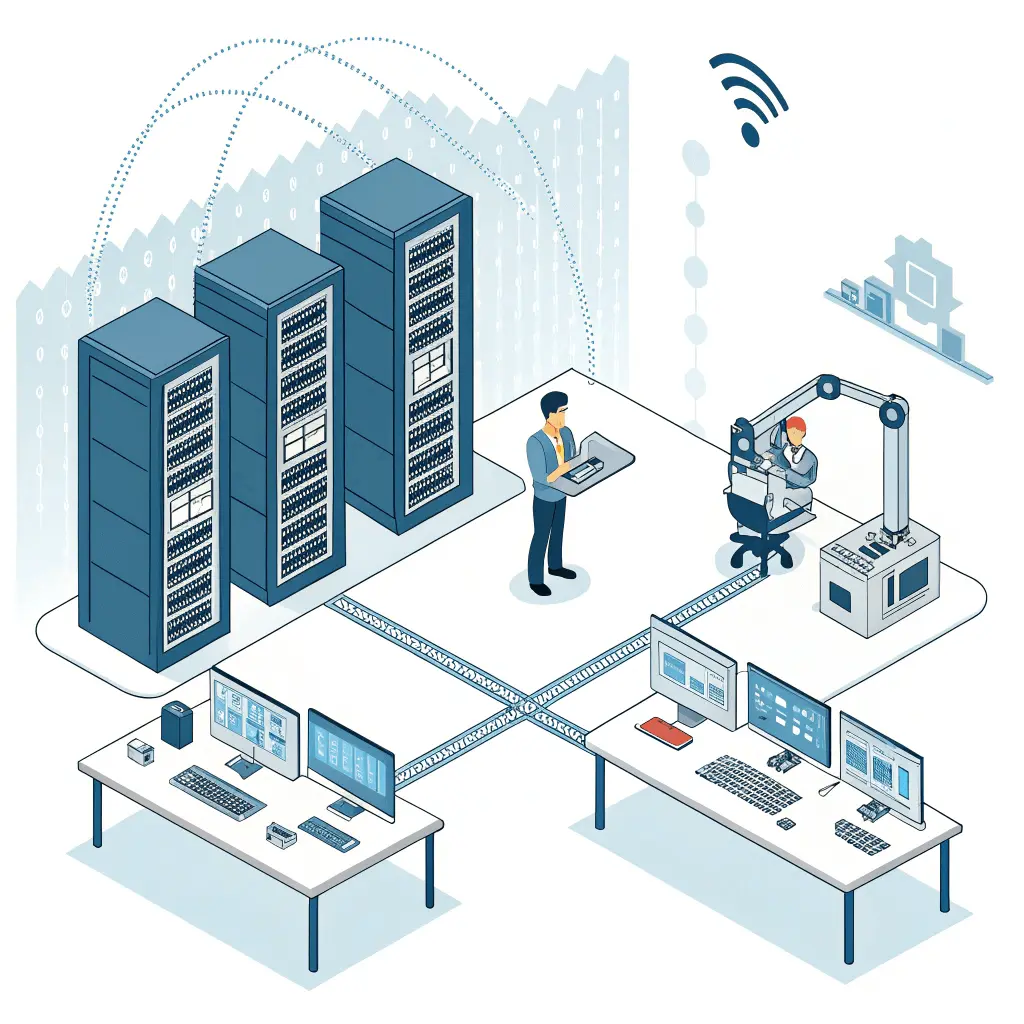
Artificial intelligence (AI) has become a pivotal force driving innovation and operational excellence. AI deployment systems are at the forefront of this transformation, leading companies to redefine their strategies and processes. Integrating artificial intelligence into the fabric of business operations augments efficiency and creates new opportunities for growth. Below, we explore the facets of AI deployment and how they are changing the critical infrastructure of modern business operations.
Understanding the Role of AI Deployment in Modern Business Operations

In today’s fast-paced business environment, AI deployment plays a significant role in maintaining competitiveness. The term ‘AI deployment’ refers to the integration and application of AI technologies and models into various business processes. This encompasses a gamut of operations, from automating mundane tasks to providing complex predictive analytics for strategic decision-making.
The efficacy of AI relies heavily on the careful selection of systems that align with company goals and capabilities. Companies use AI deployment to streamline workflows, reduce human error, and free up valuable employee time. This allows staff to focus on tasks that require a human touch, such as creative problem-solving or customer interactions.
Implementing AI can be a transformative move but requires a strategic approach. Selecting the right AI deployment systems is critical. This is because an AI system needs to integrate seamlessly with existing operations to provide tangible benefits. With responsible framework, the systems work in harmony with business goals and employee functions, maximizing the return on investment.
Enhancing Efficiency and Productivity With AI Systems
One of the most tangible benefits of AI deployment in business is the enhancement of efficiency and productivity. AI-driven automation can handle repetitive and time-consuming tasks at speeds no human workforce could achieve. This shift in task management allows businesses to process large volumes of work more swiftly and with greater precision.
Machine learning algorithms, a subset of AI, further refine these efficiency gains. They become more accurate and efficient as they process more data, identifying patterns and automation opportunities that may have previously gone unnoticed. This not only speeds up existing processes but also helps uncover new ways to streamline operations.
With AI deployment, decision-making also receives a boost in productivity. AI systems can analyze complex data sets quickly and provide insights and recommendations, which supports faster and more informed decision-making. These systems reduce the cognitive load on employees, enabling them to direct their efforts towards creative and strategic tasks.
AI Deployment and Its Influence on Customer Experience and Engagement

The deployment of AI has a profound impact on customer experience and engagement. AI-powered tools such as chatbots and virtual assistants provide round-the-clock service, ensuring that customer inquiries are addressed promptly. This continuous availability serves to enhance the overall customer experience, setting a new standard for service responsiveness.
Personalization is another area where AI shines, as it can tailor experiences to individual customer preferences and behaviors. By analyzing customer data, AI can recommend products, adjust services, and send targeted communications that resonate with individual consumers. Such personalized interactions can significantly enhance customer satisfaction and loyalty.
Navigating the Challenges of Implementing AI in Business Ecosystems
While AI deployment offers numerous benefits, it also presents challenges that must be addressed. One of the primary concerns for businesses is ensuring data privacy and security, especially as AI systems handle vast quantities of sensitive information. Establishing robust cybersecurity measures is paramount to maintain customer trust and comply with regulatory standards.
Another challenge lies in the integration of AI with existing business systems and processes. Achieving seamless implementation requires technical expertise and an understanding of how AI can complement human skills. The transition often requires extensive training and a culture shift, as employees adapt to new tools and workflows.
Additionally, the cost of implementing AI can be significant when accounting for the technology itself, along with the necessary infrastructure and support. Businesses must balance these expenses against potential returns, ensuring that AI deployment is a sound strategic investment. Careful planning and prioritization help manage costs and maximize the value derived from AI technologies.
Overall, the impact of AI-powered deployment systems on business operations is far-reaching and transformative. As businesses continue to integrate AI into their workflows, they will benefit from unprecedented efficiency, enhanced customer experiences, and new competitive advantages.
